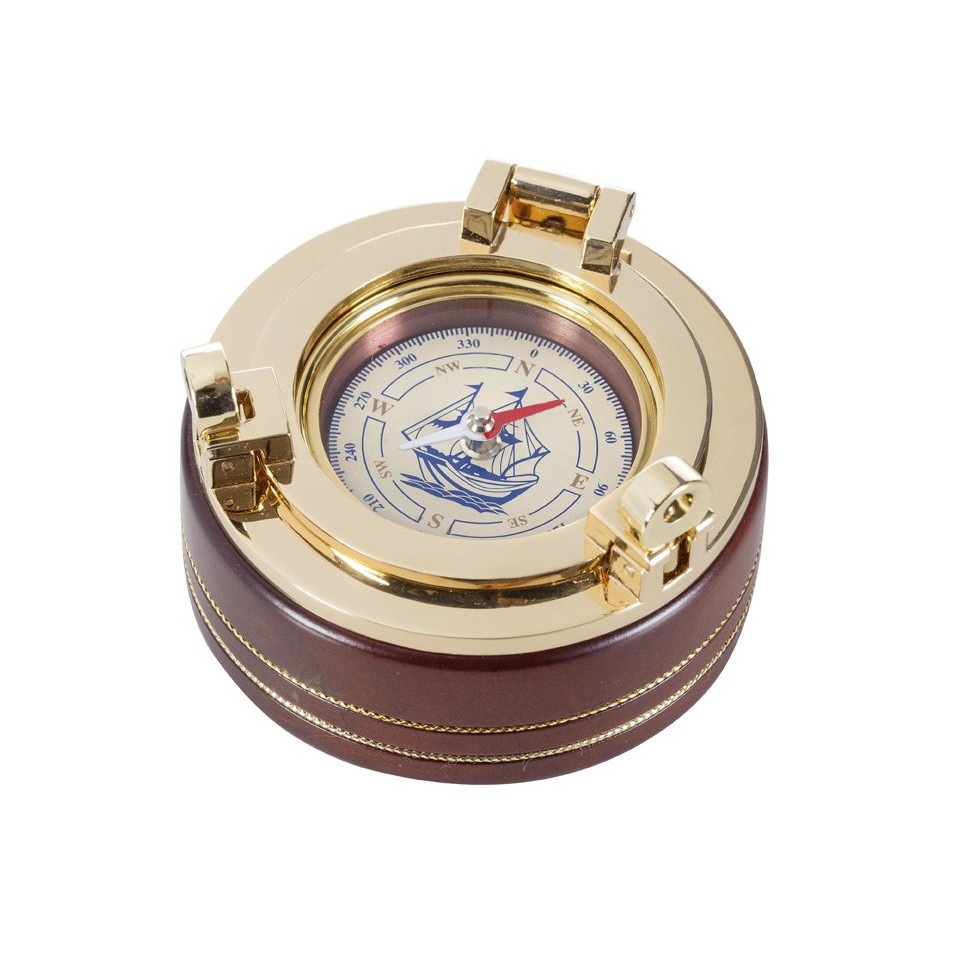



Brass porthole compass with wooden base.
PORTHOLE COMPASS.
The compass (from the Latin "passus" ("step")) opened up the world to exploration and discovery. The principle of the magnetic needle was already known to the Chinese in the 3rd century BC and was first used by feng shui priests to tell them where and how to build. It was adapted to maritime navigation by Chinese sailors around the year 1000. The first compasses comprised a magnetic needle floating in a bowl of water, with the needle suspended on a thread or threaded through a reed. The Arabs perfected this by mounting the needle on a pivot. The compass arrived in Europe between the 10th and 11th centuries, enabling sailers to cross the oceans and explorers to discover the continents. The first instrument to resemble the modern compass is attributed to Portuguese citizen Ferrande (1483).
Brass compass with wooden base.
Original pendulum table clock in the shape of a beach hut. Give your home a touch of the coast with this exclusive clock. It is made of wood and handcrafted in Spain. A drawing of a marine sailboat is printed on the pendulum. This is a gift idea for those in love with the sea and the beach. It works with one AA battery (not included) that can be easily...
Tide movement (long shaft 9mm)
Antiqued brass compass with lovely compass rose. Comes with navy blue velvet bag.
Antiqued brass compass reproduction with a box of acacia wood and small glass window. The compass opened the world of exploration and discoveries. The first compass consisted of a container filled with water in which a magnetic needle floated suspended from a thread or threaded through a reed. The Arabs perfect it by mounting it on an axis. It arrives in...
Original clock made in nickel inspired by old fashioned alarm clocks.
Nautical style wooden clock decorated with a marine sailboat. It is made of wood and it works with 1 AA battery which is not included.